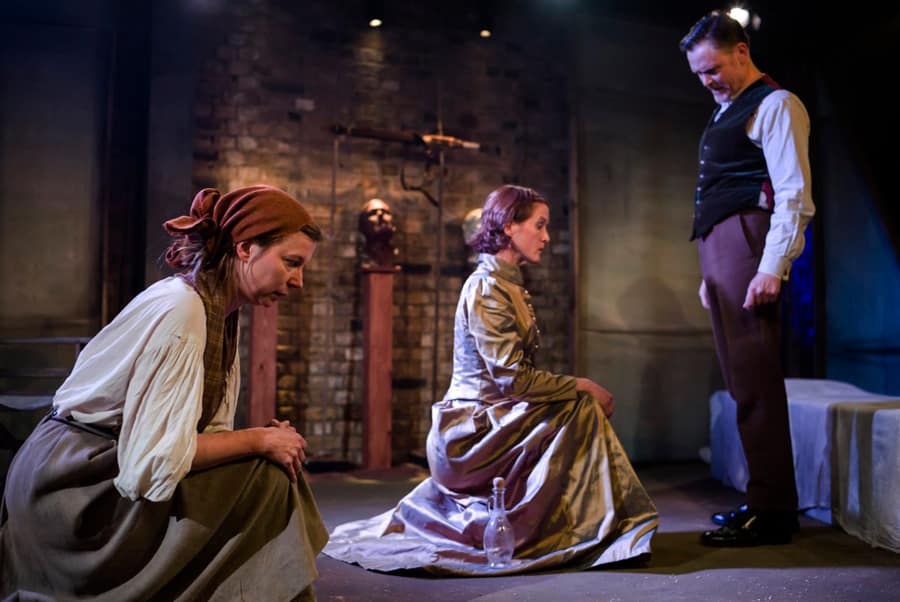
Judith: A Parting from the Body.
Mercury Theatre Studio
29 September 2017
2 Stars
She is the legendary Jewish Judith who, on the night before battle, infiltrates the enemy camp to kill the Assyrian general Holofernes. It is a moment that has been captured artistically many times, not least in a stunning painting by Caravaggio. Although Howard Barker’s script occasionally teems with a poetic harshness and beauty, Caravaggio provides more tension and drama in that one painting than Barker does in this short play.
This co-production by REND Productions and Lighthouse, Poole, ended its national tour at the Mercury. The set is simple and highly effective, indicating the inside of the general’s tent; three death masks dominate the centre, a sword hanging over them. There is no denying the commitment of the actors and director to the script. Liam Smith delivers the text well, but, as Holofernes is not the tyrant he is expected to be, casual about murdering thousands of people, the performance is muted in terms of emotion, apart from one moment when he cries and reveals the need to be loved. As Judith, Catherine Cusak is limited by a dress far too long for her, she steps on it and it is restrictive, perhaps symbolising her relationship to patriarchy, but a little distracting. However, she grasps blood thirstiness very well after killing Holofernes. Best of all is Kristin Hutchinson’s cheeky servant, often forgetting her place, and providing some much needed laughs and a connection to the audience. Throughout it all, the shifter power play provides a cerebral rather than an emotional experience.
The problem is that Barker’s script is too slight and feels under-developed, and the debates about death and love are interesting but un-engaging. The actors are given little to develop and work with, and, at fifty minutes, the audience were unsure of the ending- indeed, it felt that there had been very little progression. The relevance of the piece comes when we see power and murder transfer easily to Judith, now the oppressor, but the play finishes before this even begins to fly. Originally presented as part of a double bill, perhaps seeing it with its companion piece could have brought themes out more strongly.
